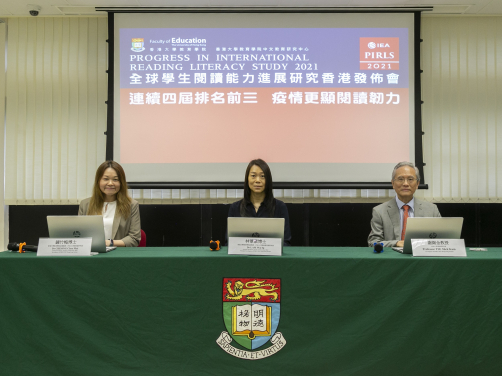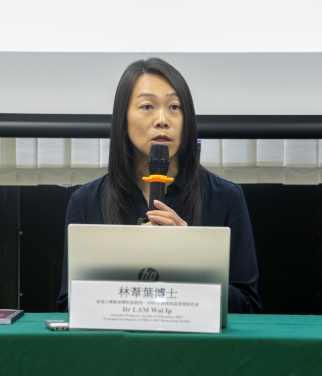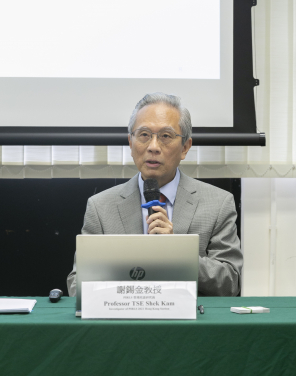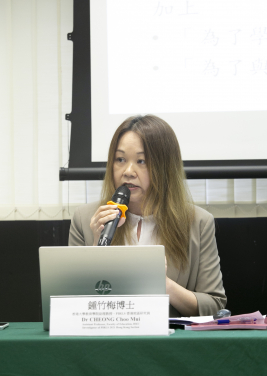Media
Thriving through the reading pandemic, Hong Kong students attain the top three ranking in the world for four consecutive PIRLS cycles
The Progress in International Reading Literacy Study (PIRLS)
International Report (Hong Kong SAR Section)
17 May 2023
“The Progress in International Reading Literacy Study” (PIRLS) is an international large-scale reading assessment organised by the International Association for the Evaluation of Educational Achievement (IEA). PIRLS has been conducted every five years to assess, compare and track the reading achievement of primary four students globally. Fifty-seven countries and regions participated in PIRLS 2021 study, with approximately 320,000 students, their parents, teachers, and principals. Hong Kong has participated in the study since the first cycle in 2001, and this is the fifth cycle Hong Kong has participated in. The research team of the Centre for The Advancement of Chinese Language Education and Research of the Faculty of Education, The University of Hong Kong (CACLER, HKU) was funded by the Quality Education Fund to participate in the PIRLS 2001 study in 1999. Since then, the research team has continued to be commissioned by the Education Bureau of the Government of Hong Kong Special Administrative Region to conduct PIRLS studies.
A team of researchers led by Dr Lam Wai Ip, Associate Professor, Faculty of Education, The University of Hong Kong (HKU) and Principal Investigator of PIRLS 2021 Hong Kong Section; Professor Tse Shek Kam, Investigator of PIRLS 2021 Hong Kong Section; and Dr Cheong Choo Mui, Assistant Professor, Faculty of Education, HKU and Investigator of PIRLS 2021 Hong Kong Section released the findings of the PIRLS 2021 study this morning (May 17). The latest release results are as follows:
Key research findings
1. Primary four students participated in the fifth PIRLS in 2021 during the COVID-19 pandemic. They scored 573 points (the international centerpoint is 500), placing Hong Kong second in the world’s ranking, and consistently in the top three for four consecutive cycles.
2. Girls performed better in reading than boys, and students achieved better results in reading informational texts than literary texts overall. Compared with previous cycles, the proportion of top-performing students has increased significantly. Hong Kong has always maintained a very low proportion of low-performing students, while in PIRLS 2021, it has the least number of low-performing students globally.
3. Both international and Hong Kong results showed that reading achievement is most directly related to students’ confidence in reading, and students gained their confidence when they are interested and motivated to read more, and cultivate good reading habits.
4. Reading at home and in school is essential for cultivating students’ interest, motivation, and habits in reading, and subsequently building their confidence in their reading ability.
5. The impact of socio-economic status on students’ reading achievement in Hong Kong is less significant than in other countries or regions, demonstrating fairness in reading education in Hong Kong.
6. Hong Kong schools maintains the highest degree of discipline and safety in the world.
7. Hong Kong students, parents, and educators have demonstrated strong reading resilience and are among the few regions globally that have not suffered setbacks in reading literacy due to the COVID-19 pandemic.
For more details about PIRLS 2021 study, please visit: https://pirls.hku.hk
For the detailed press release and appendix tables, and more photos, please visit: https://web.edu.hku.hk/press/press-release-pirls-2021
For media enquiries, please contact Dr Lam Wai Ip, Associate Professor, Faculty of Education, HKU, PIRLS 2021 Hong Kong Research Coordinator, and Principal Investigator (Tel: 3917 5282 / Email: jwilam@hku.hk / Fax: 2517 4403), or Dr Ng Hung Wai, PIRLS 2021 Hong Kong Project Manager (Tel: 3917 5694 / Email: rexnghw@hku.hk / Fax: 2517 4403), or Ms Emily Cheung, Senior Manager (Development and Communications), Faculty of Education, HKU (Tel: 3917 4270 / Email: emchy@hku.hk).





